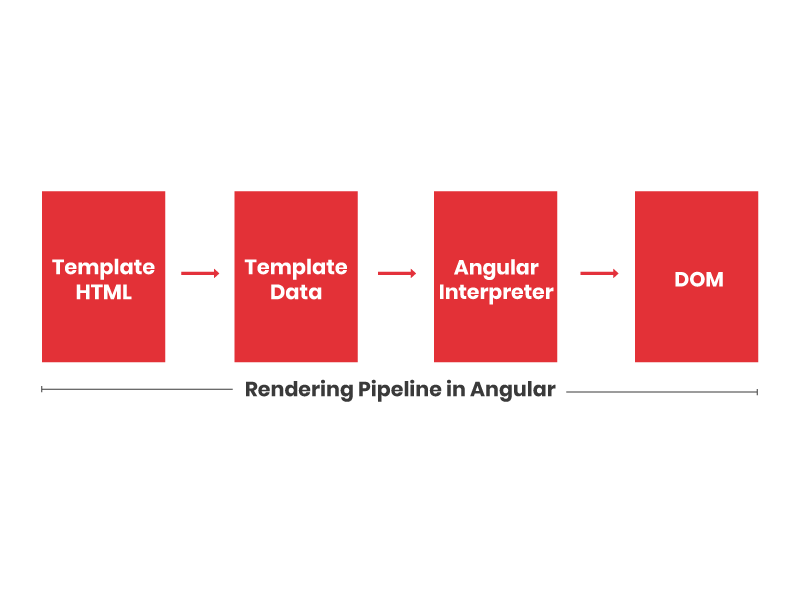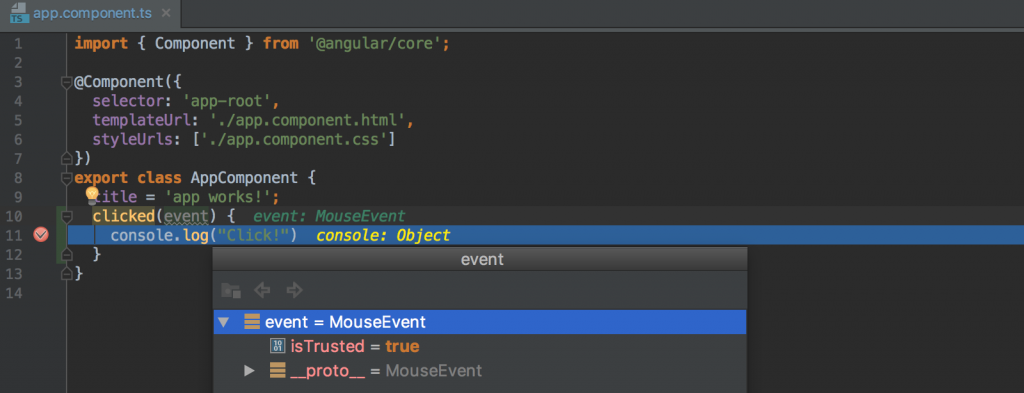Web development is constantly evolving, new technologies, work methodologies, tools appear on the market to optimize these developments. A framework alone occupies a central place when talking about web applications and the AngularJS framework traces its creation to what it is today.
AngularJS – Its origin
AngularJS is a JavaScript framework that appeared on Google’s premises in 2009 when two developers were working on a project called “Google Feedback” and for which the code of the front-end part became more and more important, very little testable and therefore with very low maintainability.
That’s why, these two developers have looked for an alternative and for this the idea came to them to create a framework that would meet their expectations, thanks to this framework they could considerably reduce the amount of lines of code used for their project and the other developers have decided to use this framework, AngularJS is born.
AngularJS is based on key concepts and good practices essential for current web developments:
- Model MVC, Model-View-Controller: a type of architecture present in many developments which corresponds to a separation of your code between the data (the model), the views (corresponding to the representations of the data) and the possible actions with this data (the controller). Although currently the versions of AngularJS tend towards the MVW model for Model – View – Controller.
- Data-binding, which is a slightly more complex notion but which is central in the AngularJS framework could be summarized by a synchronization of the data on the html page with the actions applied to it in the javascript code. As soon as the variable is modified javascript side the change is automatically reflected on the HTML page.
- The injection of dependencies will allow you to have access to modules that you develop as soon as you think to inject them into your javascript page.
- The directives are a cleaner and easier way to modify the contents of your DOM (the HTML page) by means of specific HTML attributes prefixed by ng-.
Why use AngularJS?
If you have already experienced some of the difficulties mentioned above when you have to develop a javascript project.
We will try to give you more information that could confirm your future choices in terms of web development where AngularJS would appear as the ideal solution to your problems.
First of all, we must remember that AngularJS is a follow-up to problems that have arisen within a project, so it will bring many benefits that have been put in place to answer them:
- AngularJS is complete, we mean that it alone is enough to create entirely a web application,
- In addition, it is affordable for developers of all kinds, someone who is more specialized back-end can very well claim to use and manipulate the AngularJS framework,
- AngularJS enjoys very strong popularity that will allow you to quickly find the answers to your problems via the community that uses it and constantly provides solutions to the given problems,
- We can thus remind, that the framework is open-source and that it is available on Github where again the strong community stands out and participates continuously in its improvement,
- And without forgetting that born on the premises of Google, AngularJS is fully supported by Google which again the many benefits of such support are undeniable.
- Finally, in addition to all this, the framework has been made in such a way that the code it allows to create is fully testable which until then was complicated for front-end developments.
Angular 8
Google is on the verge to release the latest version 8.0 of Angular Web App Framework in May 2019. The new rendering engine “IVY” was expected in February last year with the first opt-in technical preview which will now be released for the developers with the Ivy compiler and runtime instructions which will be focused on moving applications and the developers will not have to rewrite the application.
We are expecting many new APIs based on Ivy to be added to the public API. Those APIs can be a pack of Angular Labs that can stabilize the upcoming releases.

The developers will have the flexibility to switch between compiling View Engine and representing projects and Ivy. The Ivy preview is expecting to have good backward compatibility. Apart from easy to read the code, smaller and faster builds, there will be a lot more new features that shall include i18n, and the Angular language service and Angular Universal.
Moving towards other new features those will be available in Angular 8 will include a number of improvements in the existing features.
Some of those are as following:
– The modern browsers are fast hence the modern Javascript used in JS Bundles will help in differential Javascript loading that shall improve the time and speed to interactive (TTI).
– For a transition to TypeScript Angular, we will be provided with the ease of backward compatibility that will help the developers to upgrade huge Angular JS applications with the help of lazy loading for some parts of the code.
– The CLI will receive support for bundled web workers which then improves the parallelizability and speed of the apps by switching off the tasks to the main thread.
– In addition, the new version shall offer a usage sharing feature that will help the developers to collect more information about the community using metrics about the developer needs, speed of construction and the commands used. This can happen in the routine function updates for TypeScript, Node and RxJS.
You may download Angular 8 beta version by clicking here.
Let’s have a quick look of the new features of Angular v.8.0.0-beta.8:
Features
bazel: Eject Bazel (#29167) (36a1550)
bazel: Hide Bazel files in Bazel builder (#29110) (7060d90)
forms: clear (remove all) components from a FormArray (#28918) (a68b1a1), closes #18531
platform-server: wait on returned BEFORE_APP_SERIALIZED promises (#29120) (7102ea8)
Bug fixes

bazel: ng build should produce prod bundle
bazel: add missing binary path for api-extractor
compiler: ensure template is updated if an output is transformed
Here is the latest tutorial for you to understand how IVY is going to change the game:
To Conclude
Watching the video will give you a better understanding and a strong belief that how easy it is to upgrade to Angular 8.
If you have watched the video, you might have understood that it would not be hard to switch to Angular 8. In case you have any queries related to AngularJS Development Services then we are just a click away.



